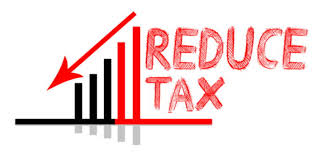
By: Hirsch Serman, MBA, CPA
It is hard to believe we are about to enter the last quarter of the year and now is a good time to think about what action to take in order to lower your tax obligation as much as possible. As I tell my clients, it is rare that there is one magic bullet that will lower your taxes and so taking a few actions can often make a big difference in paying additional taxes or getting a refund. Whether you are having a great year, living pay check to pay check, or just beginning your career, if you make the right moves before year end you may be able to save money on your taxes.
- Contributions to charity: I start with this one because it is not only going to increase your itemized deductions, it will also go to a worthy cause and help others.
- Take advantage of capital losses: If you have investments that have realized gains, you can offset these gains by selling investments that would have a realized loss. The losses can offset the gains dollar for dollar. Speak to your financial professional about when to purchase these investments again so as not to cause a “wash sale”.
- Contribute to retirement: If you are not taking advantage of a company match but not getting the full match, start here. If you up your retirement plan contributions, not only will you lower your tax bill, you will also receive a bonus of the company match. This lowers your taxes owed, gives you a bonus, and helps improve your retirement. Do not forget that even if you contribute to a company retirement plan, you may be able to contribute to an IRA as well and increase your deductions even more.
- Flexible spending accounts: Often year end is the time to elect your contribution to your FSA for the next plan year. Taking advantage of these pre-tax dollars to spend on your wellness as they can be a significant benefit. It also spreads out your payments for these services over the entire year rather than having to pay for them all at once.
- Retirement distributions: If you withdraw from a retirement account, understand if taking a substantial withdrawal this year vs. next year vs. splitting the distribution will be your best option. The best distribution will depend on your larger financial picture.
- Itemized deductions: Understand what itemized deductions you are eligible for and what thresholds have changed recently (e.g. medical expenses). Compare your aggregate itemized deductions to your standard deductions to know which will save you more in taxes. Remember increasing your charitable contributions, medical expenses, and other moves may increase your itemized deductions.
- Review withholding on the last few paychecks: There are certain withholding requirements that need to be met in order not to incur penalties for under paying taxes throughout the tax year. In order not to pay a penalty, you need to meet one of the safe harbor laws. To know if you meet these rules consider projecting the taxes you will pay through the end of the year and compare to the withholding expectations using this tool (https://www.irs.gov/individuals/tax-withholding-estimator). Increase your witholdings as soon as possible so you are able to avoid penalties.
- Learning credits: Although some itemized deductions like unreimbursed employee expenses were eliminated, you may be eligible to take advantage of the education tax credits available (e.g. the Lifetime Learning Credit of up to $2,000 and the American Opportunity Tax Credit of up to $2,500).
- Stock options: Usually there is a window in which you can exercise stock options. Evaluate if your tax bracket will higher this year or next year and consider exercising these options in the year it will result in a lower tax obligation.
- Defer your income: Many tax payers pay taxes the year income is received (i.e. cash basis tax payers). If you are self-employed, an independent contractor, or do freelance work, it may be beneficial to defer your income into 2020.
Since not everyone will benefit from the above items, I recommend you check with your financial professional prior to making these moves to see if they apply to you and if you will benefit from them. Best of luck!
Hirsch Serman, MBA, CPA is the founder of Lifecycle Financial, a company that helps those going through Divorce and other life cycle changes to navigate the financial pitfalls of a new life dynamic. The company was founded through personal experiences in divorce and watching the changes in an aging parent. He has worked in finance for over 20 years (including financial planning and tax) and has taught on the university level as well as conducted seminars for high school youth on personal finances. Hirsch is a member of the American Association of Daily Money Managers (AADMM).
INC., DivorcedMoms.com, DivorceMag.com, The Memphis Business Journal, The New Southern, and Funding Sage media outlets have all covered his work in Divorce and Hirsch was selected to be a New Orleans Entrepreneur Week Fellow. Hirsch has a passion to serve others and has worked with numerous non-profit boards including the United Way and is a Trustee on the Board of Texas College. Please reach out with any comments to hirsch@lifecycle.financial.